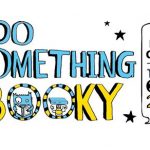Book groups are a very popular way of meeting new people and sharing a common interest, but it is often hard to find one locally as they are normally set up by word of mouth.
Reading is usually a solitary activity, but when a book has moved or stimulated you it’s natural to want to discuss it with someone else. A book group gives you that opportunity. Also, a group encourages you to think a bit more about the books you read – why you like some, or dislike others. Unless you’re a critic, when you read a book you don’t analyse it much. Critics read books in an entirely different way. A reading group is a halfway house between the two approaches, designed to enhance your reading pleasure.
Most libraries actively promote book groups, producing suggested reading lists and having multiple copies of the books on the lists to lend to clubs.
Try to find a group of like minded individuals, asking around family, friends, friends of friends and colleagues, to see if anyone knows of a group who’d welcome a new member, or if anyone would like to join a new one. Your local library if they have spaces in their reading groups, also try your local book shop.
The Reading Agency’s Reading Groups for Everyone is a network of book groups from across the UK, with information on setting up and running book groups. You can find a book group to join on the site, or find out how to add your group to their growing network.
Here are ten suggested steps to setting up your own book group.
- The ideal number is about eight – too few and it can be hard to get a discussion started. Also, if a couple of members don’t show, you can still go ahead. Too many and shyer people may not get heard.
- Monthly meetings work well because it gives everyone a chance to get hold of the book, or find it in the library, and to read it, no matter how slow a reader.
- Try to find a quiet place to meet. Pubs without loud background noise, cafés and members’ homes work well.
- Letting each member of the group pick a book in turn means you should have the opportunity to read a wide range of authors and hopefully be introduced to some new ones.
- Make up of group: a mixture of age, experience, single, married, male to female will all add to the variety of the discussion.
- Choosing a book: go for titles in paperback. . Look for reviews in newspapers and magazines, – Radio 4’s Bookclub Archive or sister programme Open Book, the book group programme on Channel Four. Try past or present prize-winning novels (Man Booker, Costa etc) and old favourites that you would like to re-read and share.
- A reading group can be as relaxed or informal as you want it to be. For more formal groups a prepared list of questions about the book will keep the discussion moving forward. Check publishers’ websites as they often include readers’ guides to books. More informal groups may prefer to let the person who chose the book give their opinion first and take it from there.
- Taking down short notes on a postcard while reading the book helps enormously when it comes to later discussion. Or sticking post-it notes next to sections of the book that interest you as you read. Points to discuss could include: your emotional response to the book, characterisation, themes, most memorable parts (descriptions/dialogue), strengths and weaknesses.
- Be aware of how you will manage cancellations/ change the book if it’s unavailable etc.
- Socialising together outside the book group can be rewarding too – seeing the film version of a book you’ve discussed or going to an author event.
What to talk about
Usually, members of a reading group take it in turn to nominate a book. The person who has nominated this month’s book might then introduce it by saying why they chose it, and maybe a little information about the author. That same person might lead the discussion, perhaps by having prepared five or six points to raise.
Start with your reaction to the book – did you love it, loathe it or remain indifferent to it? Why?
Then think about what the book is really about – its themes. Are the characters real for you? Who do you sympathise with? Is there a particularly memorable piece of writing or scene in the book? Does the book have a message? What does it tell you about the author? Does it remind you of anything else? Do you want to read more by the same author? If it’s a prizewinner, did it deserve to be?
Discussion can often be even more stimulating if you disliked a book (though careful how you express it). Did you lose interest in it? Why? The characters? The story itself? Too confusing – or too obvious? Too much or not enough description?
Are you in a reading or book group? Let us know what you like to read and how you organise your meetings. We’d really like to hear about your experiences.




